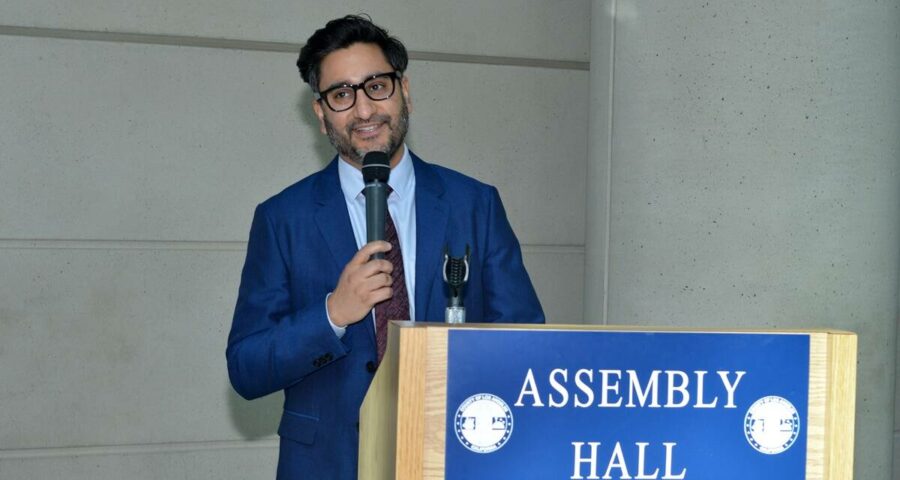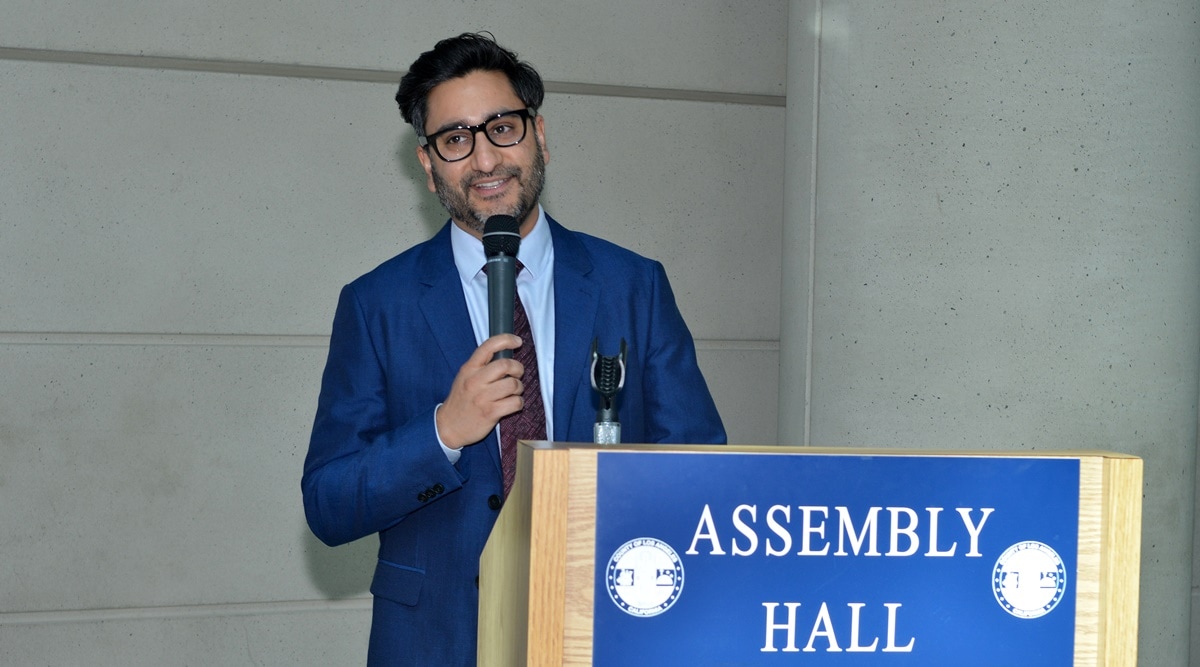Tiger Woods was taken to the Harbor-UCLA Medical Center in Los Angeles, where he was operated upon for multiple injuries by a team of doctors under Dr Anish Mahajan, who traces his roots to Jalgaon in Maharashtra.
Following his car crash on Tuesday, 15-time major champion Tiger Woods was taken to the Harbor-UCLA Medical Center in Los Angeles, where he was operated upon for multiple injuries by a team of doctors under Dr Anish Mahajan, the hospital’s 46-year-old Chief Medical Officer who traces his roots to Jalgaon in Maharashtra.
“I have followed Tiger Woods’ career, watching him on television. I believe the way he won the 2019 Masters was very inspirational and it speaks about his will power to come back after so many injuries which proved how strong he is as an individual,” Dr Mahajan, who is also the interim CEO of the 570-bed hospital, told The Indian Express.
Woods was involved in a crash on Hawthorne Boulevard at Rancho Palos Verdes in LA County. Dr Mahajan’s hospital is one of five level-1 trauma centres in the county, providing specialised surgeons, emergency room doctors, and anaesthesiologists, often for victims of car crashes, industrial accidents, and gunshot or stabbing injuries.
Woods was subsequently transferred to the Cedars-Sinai Medical Center in Los Angeles, where he received successful “follow-up procedures”.
“The first thing is to ensure (when patients such as Woods are brought in) is their vital systems are working fine and (to) access what kind of injuries are there. If there is a brain injury, neurosurgeons come fast, if there are internal injuries, the general surgeon trauma should come in, and if there are bone injuries, orthopaedics trauma specialists should come,” Dr Mahajan, who supervises all 12 clinical chairs at the Harbor-UCLA Medical Center, said.
Dr Mahajan is the grandson of the late Yadav Shivram Mahajan, who was the Congress MP for five terms in Lok Sabha, once from Buldhana, and four times from Jalgaon. His family moved to the United States in the 1970s, where Dr Mahajan’s father, Prakash Mahajan, joined the Stevens Institute of Technology, New Jersey, for a Masters in electrical engineering.
Dr Mahajan initially pursued a Bachelor’s in public policy before getting his MD from Brown University. He completed his MPh in international health from Harvard School of Public Health, and his MS in health services from UCLA. He visited India often, spending time with his politician grandfather – this, Dr Mahajan said, was one of the reasons why he opted for studies in public policy before switching to study medicine.
“As a child, when I visited my grandfather at Jalgaon, I would see children from surrounding villages approaching him and he would spend time teaching them amid his busy schedule, speaking to their parents, and filling their forms. His desire to work for the poor inspired me to dedicate my career towards the medical profession. I did my graduation in public policy since I believe that improving the health of the population requires changes at the policy level, and not just on the clinical side. My interest was to improve healthcare for people who are poor and indigent,” he said.
Dr Mahajan, a Robert Wood Johnson Foundation clinical scholar at Brown University, was appointed by President Barack Obama in 2009 to serve as a White House fellow in the office of Management and Budget (OMB). In this role, he acted as a special advisor during the passage of the Affordable Care Act, Obama’s signature healthcare initiative.
“My belief is that healthcare is a right if you are a human being. In the USA, healthcare depends upon who you are, what is your immigration status, or your social status. And that means that you may have access to different levels of healthcare. I believe people should have equal access to it. I see the same kind of challenges in India, where people who are poor and indigent have a different kind of healthcare. The focus needs to be on giving access to good health to all, irrespective of who you are,” Dr Mahajan said.
Los Angeles saw a spike in Covid-19 cases in December-January with over 8000 patients, on the heels of a million cases earlier with 20,000 deaths. “Initially, there was a lot of stress and anxiety. When the second and third waves came, the challenge was to tackle the high number of cases and the fatigue factor. The staff also had to deal with the human sadness,” Dr Mahajan, who is also associate dean of the UCLA-David Jeffen School of Medicine, said.
In the course of a long and dreadful year, his hospital had to seek the help of mental health specialists, he said. “Most doctors and nurses had to undertake extra shifts. Many of the staff members also got sick from Covid-19 while at home… We had sessions with psychologists. My role was to support everybody on every single day, be it Christmas or New Year’s, bring them food on such special occasions amid the gloomy atmosphere. When I got some free time, I read Amitav Ghosh’s new novel Gun Island… It relaxed my mind,” Dr Mahajan said.
Source: Read Full Article




